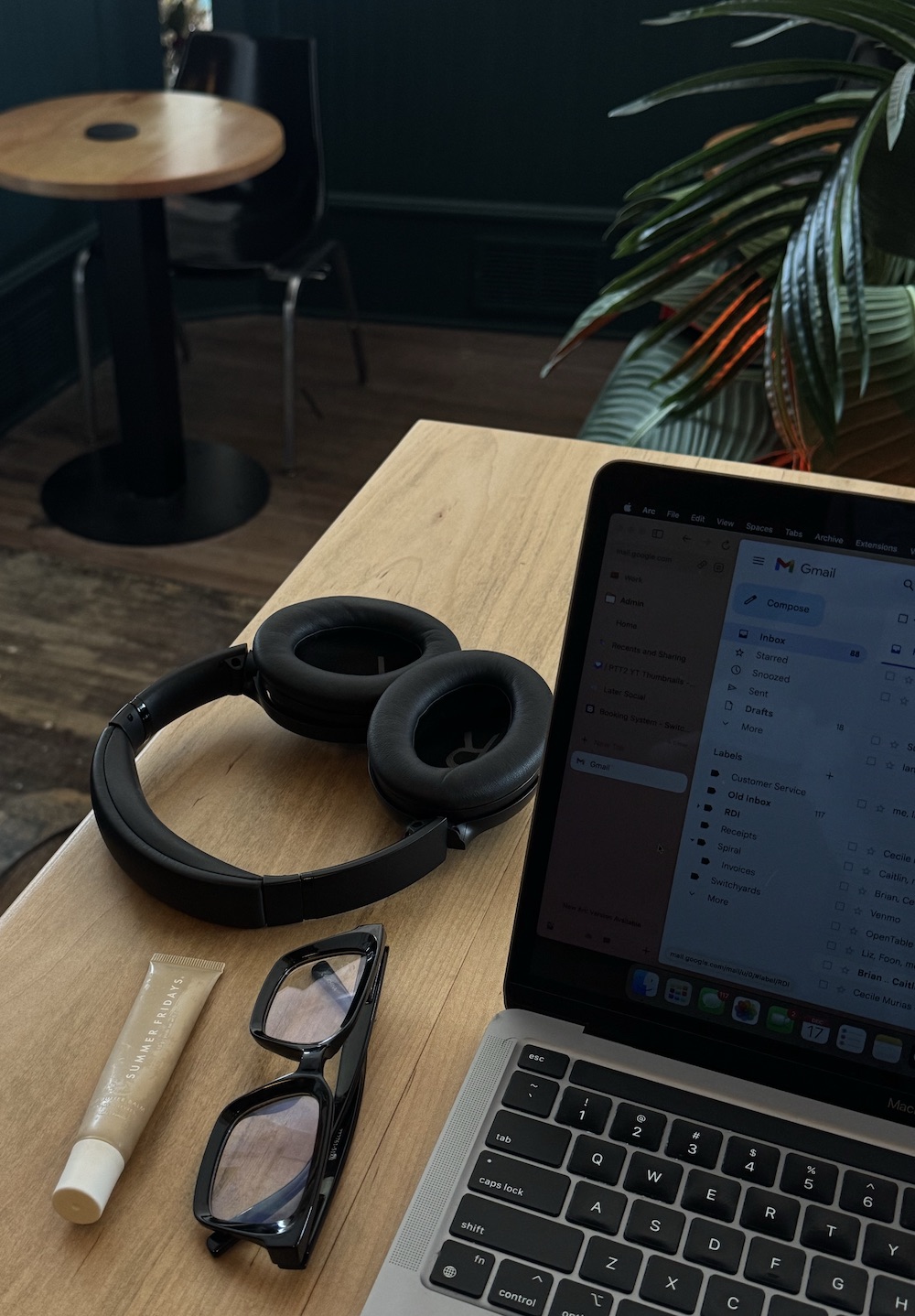You’ve got big plans for your business, you’re ready to share your expertise, but there’s one lingering question—what’s the best way to get started with blogging?
You know that you want to start blogging for your business (yay!), but you’re not sure where to begin. Maybe you’ve heard that having a blog can help you attract clients, build authority, and boost your online presence—but do you really need to start your own blog, or are there other ways to get your content out there?
Before diving in, let’s talk about the options. Here are three main paths you can take to start blogging for your business:
1. Create your own blog on your website, where you control everything—your content, design, SEO strategy, and how often you publish.
2. Guest post on established blogs in your industry to get your content in front of an already-engaged audience, even if you don’t have a big following yet.
3. Publish on platforms like Medium, which allows anyone to post and get instant visibility without the need to maintain a blog on your own site.
Each option has its own set of benefits, and the right choice depends on your goals. In this post, I’ll help you navigate these three paths, so you can decide what works best for where you’re at right now.
Option 1: Owning Your Blog
Pro: Your Blog, Your Rules
Having your own blog gives you full control—it’s your space to do whatever the heck you want.
You can decide what to post, when to post it, and how to optimize your content for search engines. This is the long-term play. By consistently sharing valuable insights, tips, and ideas, you build your brand’s authority and get to create a library of content that reflects your expertise.
Plus, every post you publish boosts your SEO, making it easier for potential clients or customers to find you via Google, Bing and even Pinterest.
When to commit to your own blog:
- You want to build long-term traffic to your website.
- You’re looking to establish your brand as the go-to resource in your field.
- You want control over your content and the ability to rank on Google.
Example:
If you’re sharing content like “How to Boost Your Productivity with 5 Simple Tools,” your blog can become a resource for people searching for ways to improve their workflow. Over time, it becomes a valuable asset where people go to find useful tips and solutions.
Con: It Takes Time
The biggest downside of starting your own blog? It’s a long game. You won’t see overnight results. Building a following and ranking on search engines takes time and consistency. If you need immediate results or visibility, guest posting or using platforms like Medium might get you quicker wins.

Option 2: Guest Posting
Guest posting is one of the fastest ways to build credibility, especially when you get featured on high-authority blogs or industry-specific publications. Being published on well-known sites can instantly position you as an expert in your field, helping you reach a larger, highly engaged audience. You’ll gain visibility, build relationships with editors or influencers, and establish yourself within your industry.
When guest posting makes sense:
- You want to build authority quickly by being featured on reputable sites.
- You’re looking to connect with an audience that already trusts the blog you’re posting on.
- You want to build credibility without the pressure of managing your own blog.
Example:
If you’re published on a major industry blog like Forbes or HuffPost, it immediately adds credibility to your name. Readers are more likely to trust your expertise because they’re already familiar with the publication, and having your work featured there lends authority to your brand.
Con: You Don’t Own the Content
While guest posting gives you credibility and visibility, the content you write for someone else’s blog isn’t yours. It doesn’t live on your website, which means it won’t help build SEO for your own domain. Plus, many publications don’t allow you to repost the same content on your own blog.

Option 3: Medium
Pro: Create a Hub of Content Without the Hassle of Managing a Blog
Medium offers a unique opportunity to create a hub of content without needing to maintain your own website. It’s quick to set up, user-friendly, and gives you access to an audience of millions. What’s great about Medium is that you can publish as frequently as you like, test different content styles, and build a portfolio of work. Plus, if your content gains traction, Medium’s algorithm can help it reach an even wider audience by pushing it to the platform’s front page.
When Medium makes sense:
- You want to start publishing content quickly without setting up your own blog.
- You’re looking for a platform to test out different ideas and writing styles.
- You want to create a hub of content that readers can easily access without needing a full website.
Example:
Let’s say you’re a coach offering productivity tips. You can build a collection of articles on Medium like “5 Morning Habits That Will Transform Your Day” or “How to Stay Focused When Working From Home.” Over time, these pieces can create a hub of valuable content that showcases your expertise, while also attracting readers who are searching for these topics on Medium.
Con: You’re Not Building SEO for Your Own Site
The downside? Medium doesn’t build your website’s SEO. You’re essentially building a following on Medium itself, rather than driving traffic to your own site. While this is great for visibility, it won’t help you establish long-term traffic for your own domain.
But wait… Can’t I Do Both Guest Posting and Blogging on my Own?
Yes, you can—but be strategic! You can publish on both your own blog and guest blogs, but avoid posting identical content on both platforms.
Search engines might penalize you for duplicate content, and neither post will rank well. Instead, consider publishing original content on your blog and tweaking guest posts to complement it.
That way, you get the best of both worlds—boosting your visibility while also building up your own site’s authority.
If you really want to duplicate both, use a canonical link to tell the search engines which one they should rank.
The Verdict: What Blogging Platform is Right for You?
Ultimately, whether or not you need your own blog comes down to your goals. If you’re playing the long game and want to create a home base for your content, starting your own blog is a powerful way to grow your brand and build authority over time. But if you’re looking for quick wins, exposure, or a way to test the waters, guest posting or using platforms like Medium can get you results faster.
Here’s the breakdown:
- If you want to establish your blog as a resource hub: Start your own blog and build it over time with consistent content.
- If you need fast exposure and want to connect with an existing audience: Guest post on relevant blogs or start posting on Medium for immediate visibility.
- If you want to try both: Use a mix of guest posts and your own blog while tweaking content for each platform to maximize your reach.
Ready to start blogging for your business?
Blogging is one of the most effective ways to share your knowledge, connect with your audience, and grow your business. Whether you start with your own blog or guest post on others, the important thing is to start showcasing what you have to offer your ideal clients. Over time, you’ll figure out what works best for you, and the results will follow.








Comments +